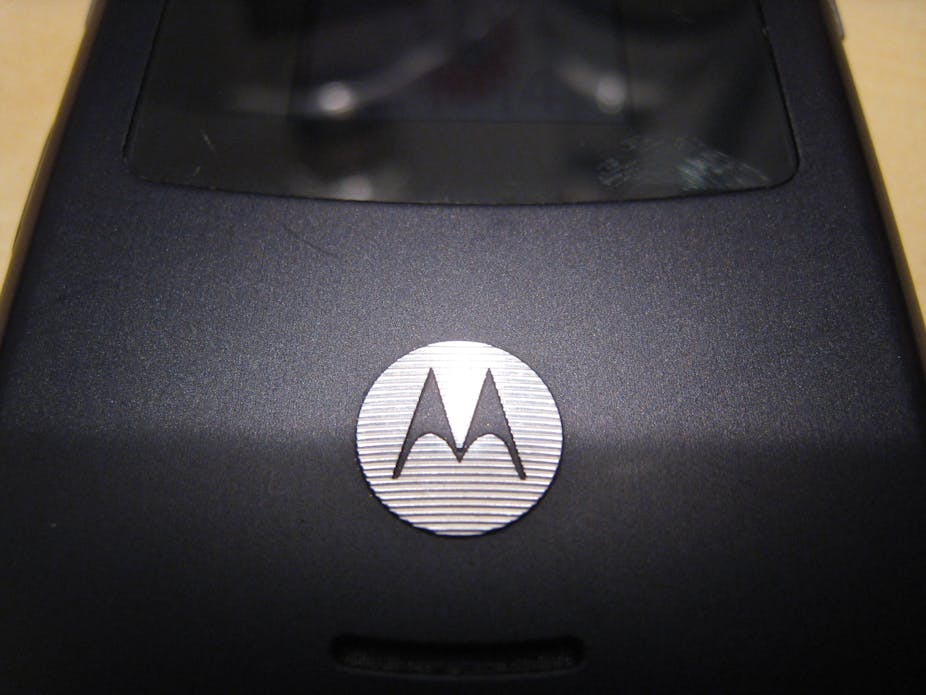Google’s decision to sell Motorola to Lenovo could easily be misread as a sign of defeat. In fact, it is win-win. And it spells trouble for struggling competitors Blackberry and HTC.
Google originally bought Motorola in 2012 for about $12.5 billion and is now selling for $2.9 billion. The apparent shortfall is less severe when you consider the fact that Motorola came with $2 billion in cash (roughly the size of the operating losses incurred since), a set-top box business which Google sold off the same year for $2.35 billion, and roughly 17,000 patents which will mostly remain with Google.
At the time of the original purchase, there was much talk of Google combining its software with Motorola hardware to create an unassailable ecosystem. But that was arguably never at the forefront of the internet company’s thinking when it bought the former American technology icon.
Pre-existing relationships with phone makers using Android would have soured if Motorola had become a privileged conduit for the operating system. The danger of such conflicts of interest is demonstrated by Microsoft’s involvement with Nokia, which hurt the prospects of Windows Phone becoming a universal smartphone operating system.
Google frees itself of baggage
Google was primarily interested in Motorola’s patent trove. The intellectual property is useful in the proxy-court battles with Apple. Back in 2012, Motorola’s patents were not on sale without the hardware business, so Google took the whole lot.
Just before that acquisition, Google had lost out in a bid for the patent portfolio of Canada’s ailing Nortel. A consortium that includes Apple acquired those patents and used them to sue Google.
Mindful of such threats, Google not only acquired Motorola but also recently agreed to cross-licence patents with Samsung, further bolstering its defences. The combined war chest of patents is to defend the Android ecosystem, rather than protect any advantage in hardware that Motorola had already lost. So Google won’t mind ridding itself of the actual hardware operations.
Lenovo gains hardware scale
The smartphone market is maturing rapidly, with Apple and Samsung both failing to attain anticipated profits. It is becoming harder and harder for manufacturers to justify price premiums when smartphones look increasingly alike.
With such commoditisation, economies of scale grow in importance. Lenovo recently overtook LG to become the world’s fourth-largest smartphone maker by shipments. Motorola will add to its scale, particularly in the US market.
Lenovo, battle-hardened in the cost-conscious Chinese consumer market, is arguably better placed than Google to make the economics of maturing markets work in its favour. The company successfully built on IBM’s former Thinkpad brand when that market matured. It has also recently announced a takeover of IBM’s lower-end server business.
By contrast, Google thrives more in nascent markets, moving at the cusp of the technology frontier. In addition to the patents, the company is also holding on to Motorola’s Advanced Technology group – a kind of Q-division whizz-kid team.
This team’s recent innovations include novel voice controls and clever hardware modularisation. The brainpower will no doubt be of use as Google intensifies its presence in wearable devices and the smart home market.
Smaller contenders threatened
Two companies, however, will be upset about the Motorola deal. Blackberry, a former pioneer of the smartphone era, has the dubious fortune of counting Barack Obama as a customer. Lenovo was interested in Blackberry, but the Canadian government considered the possible takeover a threat to national security and its neighbour’s president.
So Blackberry now has to make do without outside rescue. It has belatedly pivoted towards providing mobile device-agnostic security services while outsourcing hardware to Foxconn.
The other disappointed onlooker is HTC. It is neither perceived as a high-end brand nor is it big enough to compete effectively in the mass market. It might end up in the arms of Amazon or attract interest from other Asian challengers such as Huawei or Coolpad.
Smartphone hardware is about to become as normal and boring a market as any other, where scale creates margins. Google’s strengths lie elsewhere.

